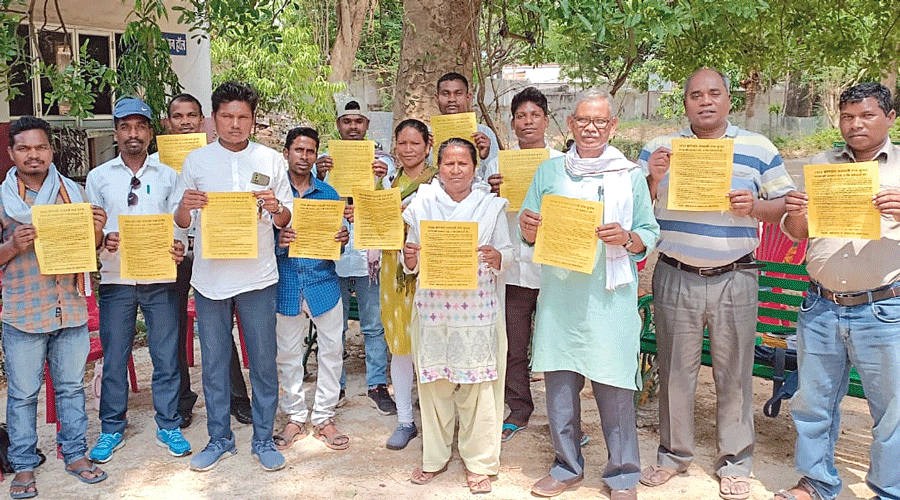Food security activists of mineral-rich West Singhbhum district in Jharkhand will create awareness in all the 1,691 villages of 18 blocks so that villagers pick genuine candidates and not those having nexus with contractors in the ensuing panchayat polls.
“We have drafted a pamphlet which will be distributed in villages. We will hold public debates on the issues that different panchayats are facing and will also organise meetings in almost all villages and panchayats to appeal for electing right representatives for the Panchayati Raj. We will also host debates in which candidates would be invited to answer the questions of the public,” said Siraj Dutta of the Food Security Forum.
Jharkhand State Election Commission (SEC) has announced a four-phase rural poll in the state between May 14 and May 27. The poll for the three-tier panchayat will be held to elect 4,345 mukhiyas, 5,341 panchayat samiti members, 536 zilla parishad members and 53,479 gram panchayat members.
“In almost the entire state despite the formation of Panchayati Raj, the bureaucrats and contractors still call the shots. The Panchayat Bhawan is there only in name and the block office remains the centre of governance. The villagers have to go to the block office to get all the work done. The officers work in an arbitrary and irresponsible manner and instead of empowering the gram sabhas, they try to impose their own instructions,” said Helen Sundi, another member of the Food Security Forum.
“Unfortunately, panchayat representatives have also become a part of the system of corruption which is clearly visible in MGNREGS, wherein instead of ensuring the rights of the workers, panchayat representatives exploit the workers by hobnobbing with contractors. Although the gram sabha is supreme in the Fifth Schedule area, the traditional self-government system and the gram sabha are often bypassed by the panchayat representatives. The accounts of the schemes are not shown to the villagers,” added Sundi.Some of the important features mentioned in the pamphlets drafted by the forum are that candidates should stay permanently in the constituency, respect the traditional self-government system — Munda-Manki system, ensure the gram sabha-centred decision-making process, support the struggle for the rights of indigenous people and not become a part of the loot of water, forest and land, ensure timely work and payment to MGNREGA workers instead of siding with contractors, strictly monitor the public distribution system so that cardholders get full ration on time, ensure social security pension for all elderly people, widows and disabled persons, close monitoring of anganwadi services, education in schools and mid-day meals, fight to strengthen the public health system, support the villagers in the struggle for community and individual forest rights lease, fight for increasing irrigation facilities in villages by using MGNREGA and other schemes.
The pamphlets also wants the candidate to promote transparency and make public the full details of the expenditure of various programmes such as MGNREGA and 15th Finance Commission implemented by Panchayati Raj regularly.










